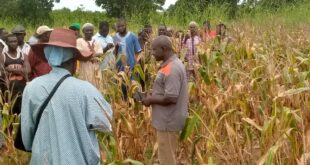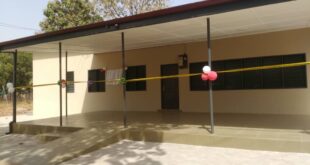 Yendi, Ghana – Protesters for the creation of an Eastern Corridor Region which has received barefaced rejection by the Dagbon Traditional Council, have refused to relent.
Yendi, Ghana – Protesters for the creation of an Eastern Corridor Region which has received barefaced rejection by the Dagbon Traditional Council, have refused to relent.
Another protest broke out again Thursday, January 4, days after a youth coalition in favour of the creation staged a noisy street demonstration in Yendi, against the traditional council decision to block the creation of proposed Eastern Corridor Region from the current Northern Region.
The renewed demonstration embarked on only by women and little children in the Eastern Corridor enclave was to step up pressure on the traditional authority to rescind it decision.
The women protest bore similar features of what was witnessed on Monday, except the women were less aggressive and did not spew unsubstantiated rhetoric against chiefs and politicians, unlike the Coalition youth which openly accused some regional leaders of the opposition NDC party including Minority Leader Haruna Iddrisu, of influencing the verdict of the traditional council.
They waved placards with very measured messages and matched directly about 1.5km to the Municipal Assembly building where they handed over a petition to the Chief Executive, Alhaji Ahmed Abubakari Yussif.
“Bring it on, let’s vote on it. Government you can’t fail the youth. Don’t politicise the Eastern Corridor Region “, some of the placards read.
Their petition containing their grievance was addressed to President Akufo-Addo.
Women as old as 60-65 years were spotted taking front rows in the protest that appeared to be beyond just the quest for new region. Protesters lamented the unbearable hardships and high youth unemployment in the Eastern Corridor enclave which has been totally neglected by governments for decades, largely due land and chieftaincy conflicts.
Asana Abudu, a leader of the protesters said women within the Eastern Corridor territory were very “hurt” by the decision of the Dagbon Traditional Council.
She said a new region would accelerate development and open new opportunities for the youth drifting out to cities in search for improved sources of livelihood.
 Savannah News Online Reporting Only What Matters Most
Savannah News Online Reporting Only What Matters Most



